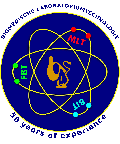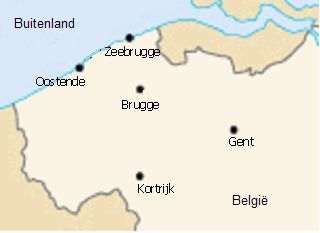Genomics Core UZ Leuven
Abstract internship (advanced bachelor of bioinformatics) 2016-2017: Development of a pipeline for single-cell RNA-seq analysis
Through the constant innovations in the field of genomics, new technologies are made available in the industry. Single-cell RNA-sequencing is a recent technique that can provide a lot more insights into diseases such as cancer.
Single-cell gene expression studies promise to show rare cell types and cryptic states, but the high variability of single-cell RNA-sequencing measurements inhibits attempts to test transcriptional differences between cells.
The intention is to write a pipeline into which the other insights of single-cell RNA-sequencing are interpreted and reported with the relevant types of tools. This pipeline is written to be used on the High Performance Computer (HPC) of the Flemish Supercomputer Center (VSC).
Abstract advanced bachelor of bioinformatics 2019-2020: Development of a Pipeline for the Analysis of Spatial Transcriptomics
RNA-sequencing (RNA-Seq) technologies made it possible to obtain quantitative information on expression levels of genes. The limitation with RNA-Seq was that you lost spatial information. But the positional context of gene expression is important. Biological networks are interactive and every element in that network is influenced by its surrounding environment. Spatial information is key to understanding tissue functionality and pathological change. A lab in Sweden wanted to address this issue and created a new technique Spatial Transcriptomics (ST). With ST, visualisation and quantitative analysis of the transcriptome with spatial resolution in individual tissue sections became possible. This opened new doors in biomedical research.
This tool can be very useful to pathologists who analyse histological images; especially in the context of diseases.
The goal of the project was to develop a pipeline for the analysis of ST data for non-experts, pathologists. The idea was to use existing bioinformatics tools. First a search was made into existing bioinformatics tools for the analysis of ST data. Based on the tools found, a choice was made to use the tools of the Karolinska Institute that are open-source, free, compatible and mostly easy to use. The pipeline consists of 3 steps: ST Pipeline à ST Spot Detector à ST Viewer. ST Pipeline processes the data and creates datasets for downstream analysis. ST Spot Detector analyses Cy3-images en HE-images to correct for mistakes and create better adjusted datasets and you can also export the spot coordinates of the experiment. Then with ST Viewer you can visualize and analyse the data. You can apply certain built-in functions on the data (statistics, compare 2 regions, differential expression analysis, classify spots by gene expression).
After testing the pipeline for the first time with public ST data, it can be said that this pipeline holds potential. ST Pipeline goes smoothly. It delivers all the files, with the important counts-matrix file for downstream analysis. Because of the great size (16 GB), I couldn’t install ST Spot Detector. But based on the tutorial, it is very straightforward to use. ST Viewer is very straightforward and easy to use based on the tutorial. The counts-matrix, HE-image and the spot coordinates file were used. The Windows version didn’t contain all the functions. So as an advice the Linux version is best to be used for all the functionalities. This pipeline helps with the basic analysis of ST data. If you want to go further and deeper, it is advised to add the tool ST Analysis too to the pipeline. This tool contains scripts where you can do detailed analyses, like unsupervised learning, supervised learning, visualize ST data through plots. This can help into obtaining a full and deeper analysis of histological images that can give further insights into the understanding of diseases.
Address
|
Herestraat 49
3000 Leuven
Belgium |
Contacts
|
Álvaro Cortés Calabuig
+32 016 3 46074 alvaro.cortes@uzleuven.be |


